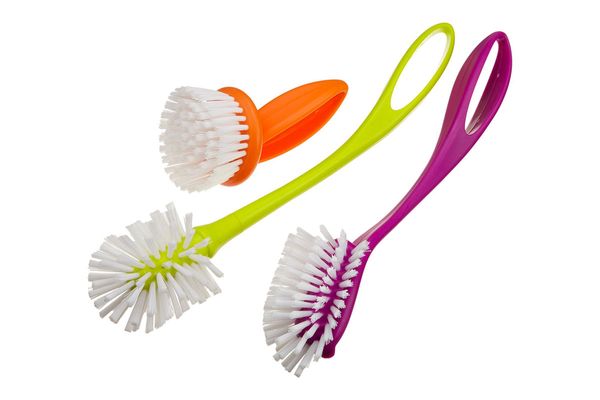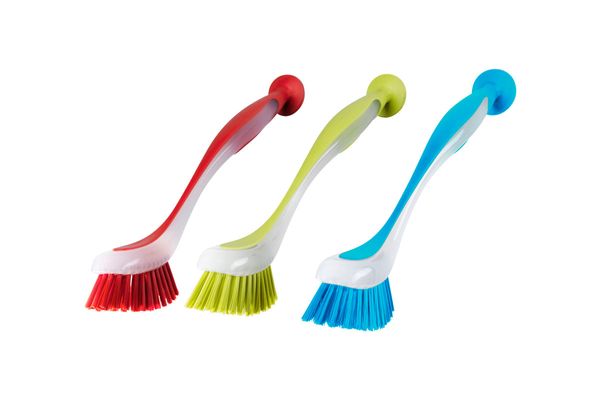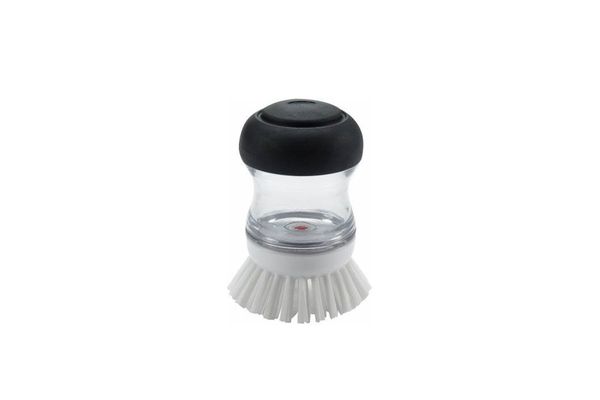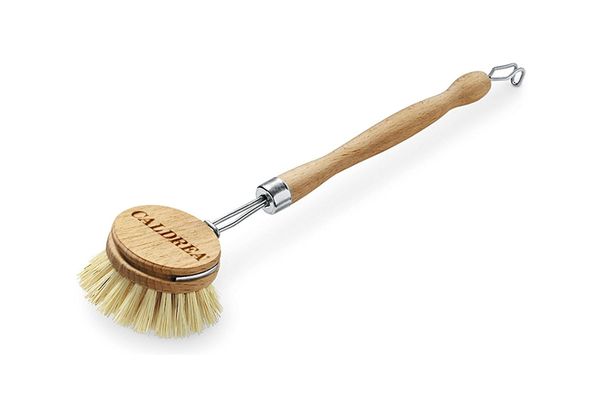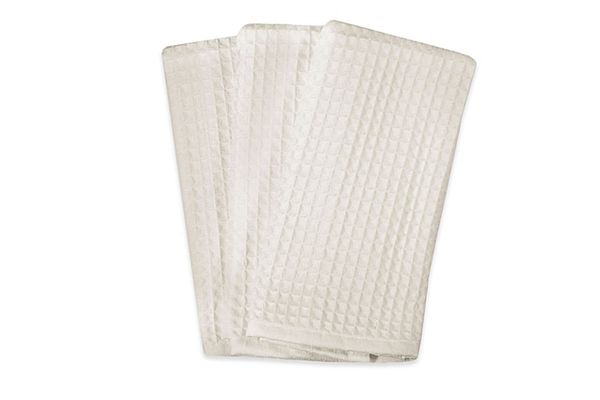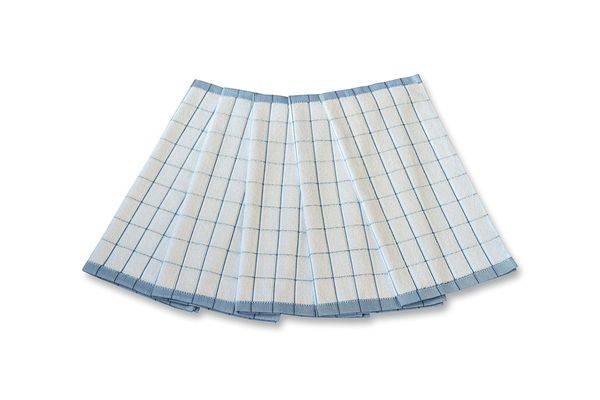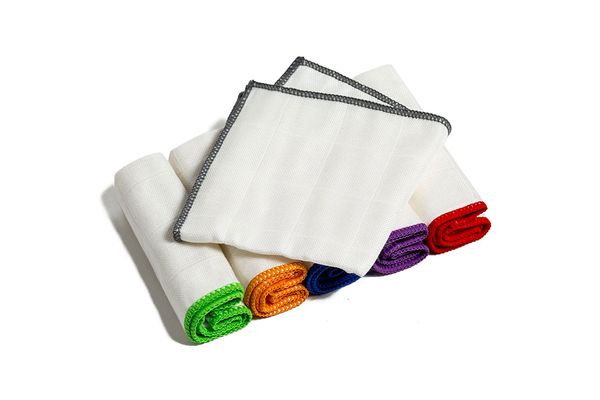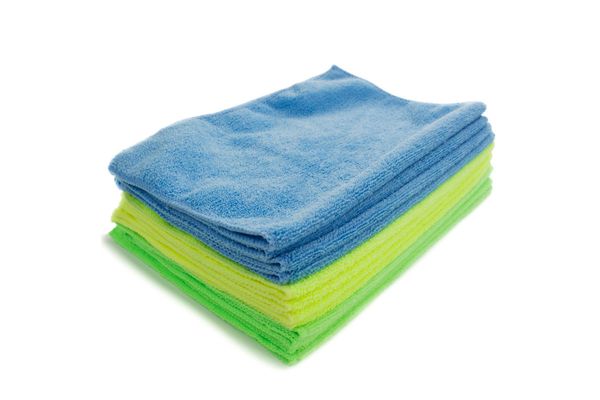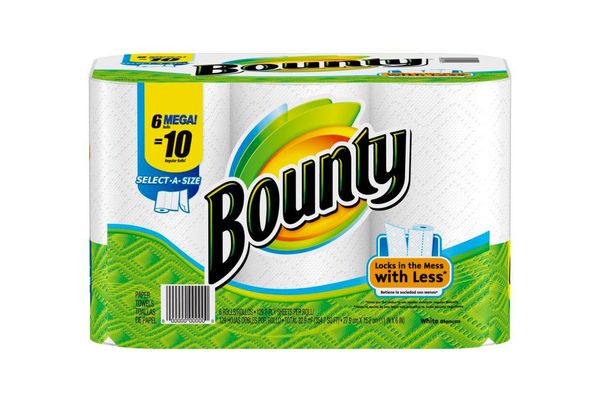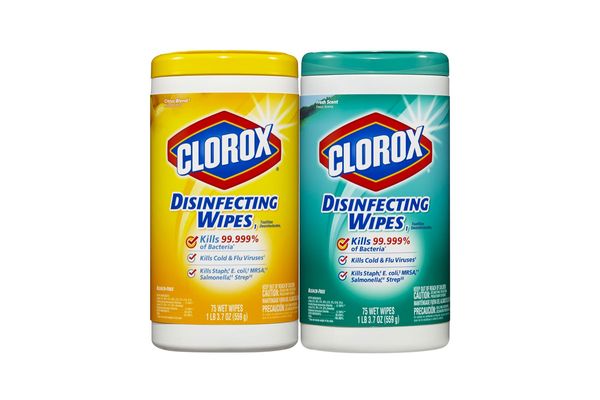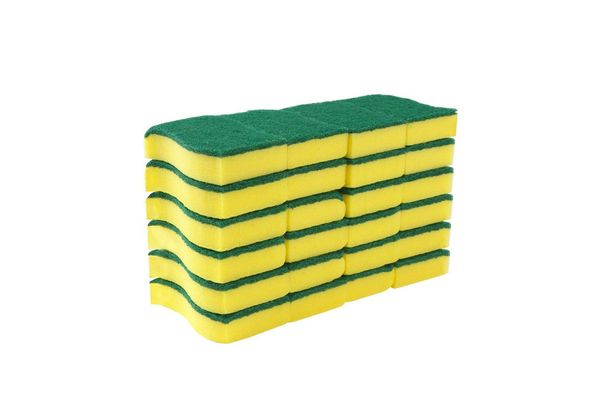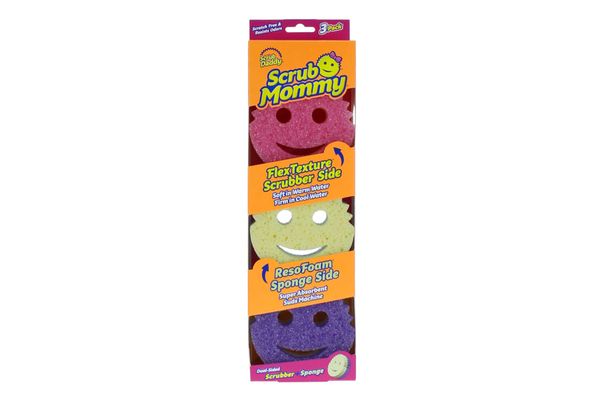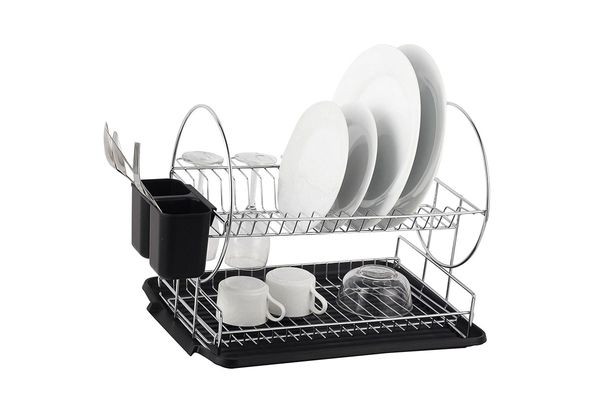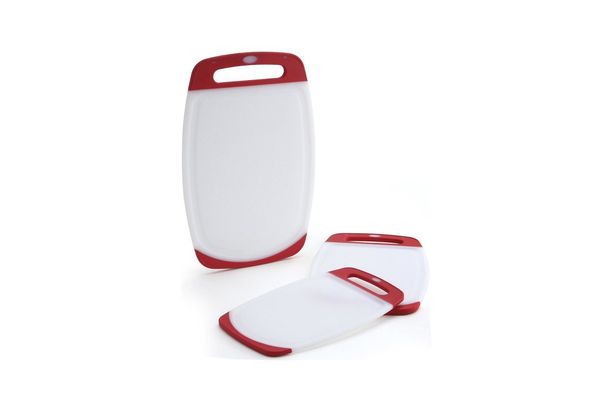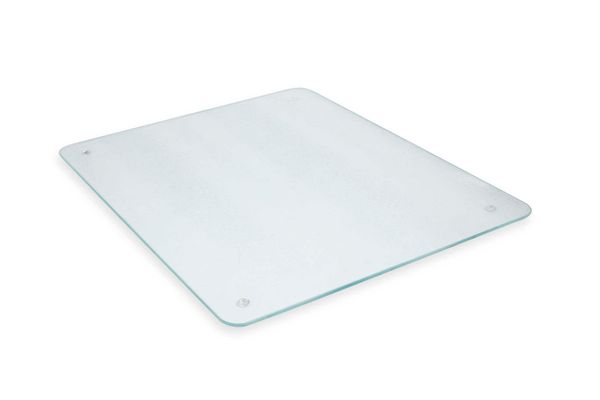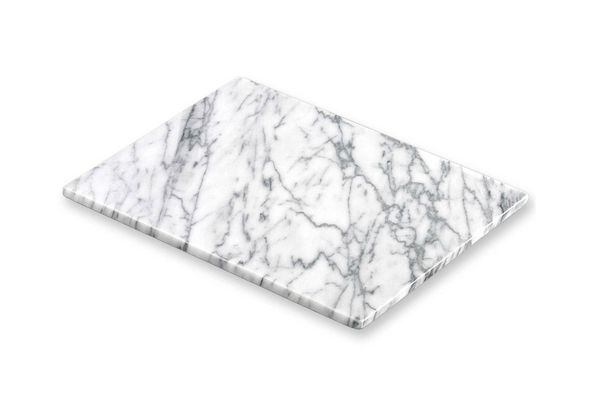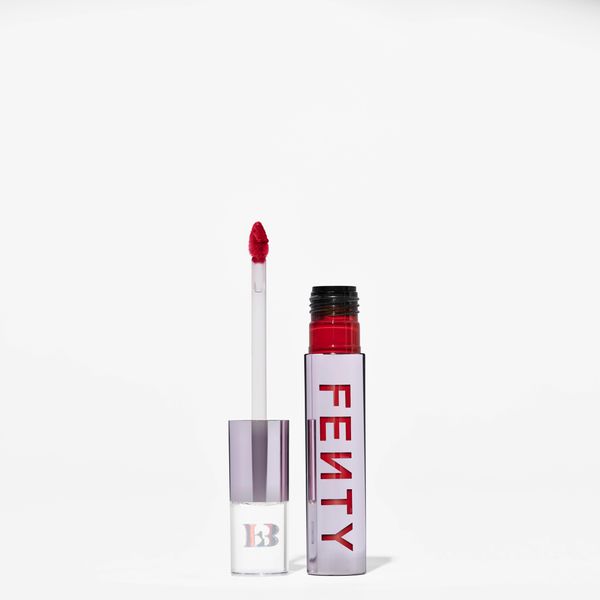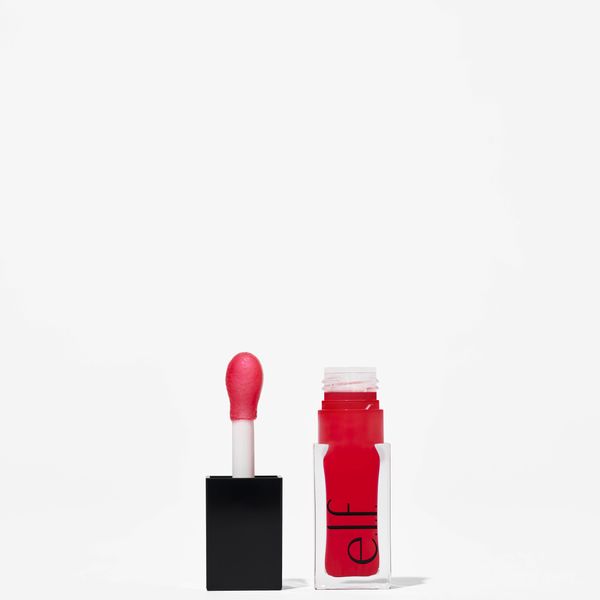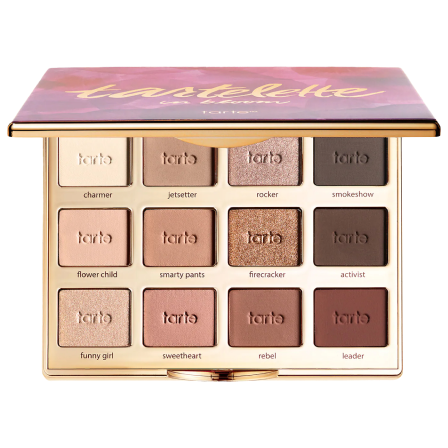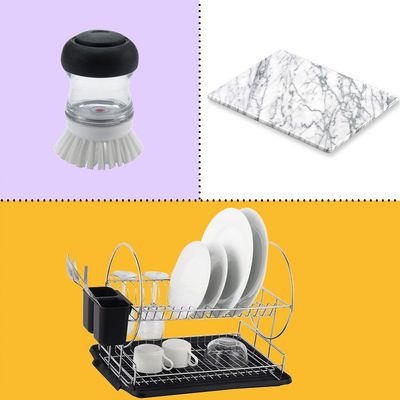
The sponge sitting right by your kitchen sink is its very own ecosystem filled with bacteria, some good and some less-good, especially for people with weaker immune systems. And a study that went viral after being published earlier this month says there’s pretty much nothing you can do about it. The “old stick your sponge in the microwave” trick doesn’t work. Cleaning it in bleach and soap has to happen every three (!) days to be beneficial. At the end of it all, the study’s writers recommended the not-quite-helpful tip to just cut your losses and throw out your sponges once a week. But there must be some better long-lasting alternatives, we thought. So we reached out to Solveig Langsrud, a senior scientist at Nofima in Norway who studies microbial communities in food production and preparation to improve food quality and safety. She’s also coordinating a project called SafeConsume with partners from 14 countries across Europe, with the goal of helping consumers prepare food safer. Below, Langsrud’s tips on the tools to use and practices to follow to mitigate the bacteria in your kitchen.
Brushes
Before giving the full breakdown on brushes, Langsrud makes sure to mention that no one has actually compared brushes to sponges in a peer-reviewed scientific study, so it’s hard to give science-backed advice here. But, “we have only to use common sense,” she says. “The advantage with brushes is that you don’t need to have your hands in warm water, so we can use higher temperatures than we can with sponges. You don’t get bacteria from the brush onto your hands. It’s also easier to clean afterward. You can just throw it into the dishwashing machine.” She adds that the disadvantage is that the food debris can be harder to remove from bristles, which is necessary before you put it in the dishwasher, and they’re also a bit more expensive. Still, everyone in Norway uses them, whereas sponges are much less common.
Here’s a three-piece set for all different kinds of kitchen items and surfaces.
A highly rated Ikea version of a similar three-piece set.
Or a more handsome wood option (but as you’ll see below, make sure to not dip the wood part into any meat juices).
Dish Towels
“For wiping tables, use a cloth instead of a sponge,” Langsrud recommends. But how to pick a cloth? “You want to chose one that will dry fast, so not a thick cotton one.” As a general note, she adds that it’s always better to choose kitchen products that dry fast because “most bacteria can’t tolerate drying. They die during the drying process, so if you don’t want to use disinfectants, we think that drying can be just as effective. About 99 percent of bacteria can be killed simply by hanging anything out to dry.” To clean these dish rags, Langsrud recommends use a washing machine set at least to 140 degrees with a cleaning agent that contains bleach.
Thin, microfiber, waffle-weave dishcloths like these dry quickly. This particular style also doesn’t create lint, making it great for wiping down glassware.
Another quick-drying, gridded option loved by Amazon reviewers.
For countertops, these microfiber towels barely need any water or wetting agent to pick up lots of dust and dirt. Ideal.
Disposable Paper Towels and Wipes
Specifically, when it comes to cleaning up fresh meat and poultry juices, dirt from vegetables, pet bowls, and vomit, Langsrud says to use paper or wipes that you’ll throw out right after use (you could, in theory, also use a sponge as long as you throw it out right after, though it’s very wasteful, obviously). She says, “Cloth or sponge and detergent will remove bacteria equally as well as spray and paper or wipes. However, using paper or wipes will not contaminate the surfaces as a cloth or sponge may do, and are safer choices.”
A whole bunch of thick, absorbent paper towels.
Use these disinfecting wipes on countertops and anywhere else meat juices might spill.
Sponges
If sponges are still your preferred method, there are still ways to make it work. “Sponges are very low-cost,” Langsrud says. “If it’s cheap, you can throw it away and just use another. You wouldn’t do that with brushes.” Another preventative measure is to designate your sponges for different items or purposes, so you’ll have one for meat, one for dishes, and one for countertops. That way, the bacteria isn’t being transferred across every surface the sponge touches. As for cleaning sponges, she recommends removing all visible dirt before either washing them in the dishwasher or soaking them in a bleach solution (a teaspoon of bleach per quart of water should work) and doing this every third day. Otherwise, you can just throw them out and replace them every week.
A lot of sponges for just 50 cents each, so you won’t feel bad for throwing them away.
If you’re designating your sponges for different tasks, we recommend the Scrub Mommy, which works for both fragile glass and caked-on grease, thanks to a technology that allows it to get soft in warm water and hard like steel wool in cold water.
Rack
It is perhaps most important to make sure to dry dishes, towels, and every other thing in your kitchen after using and washing it. As mentioned above, this goes further than just rinsing and wiping away bacteria, to actually killing it, “Someone has studied this, and air-drying on racks will kill more bacteria than using a cloth to wipe away the water,” Langsrud says. She recommends something like a metal drying rack.
If you have the counter space, this drying rack carries everything you’ll need in one place.
Bonus Tip
“I’ve also read articles where they compared wood chopping boards with plastic or stainless-steel ones, and they had a lot of problems with removing bacteria from wood,” Langsrud says. “Not just for chopping, but kitchen surfaces in general. Steel, plastic, or marble will always be better than wood.”
An easy-to-clean glass board to put over any other harder-to-clean surfaces.
The Strategist is designed to surface the most useful, expert recommendations for things to buy across the vast e-commerce landscape. Some of our latest conquests include the best women’s jeans, rolling luggage, pillows for side sleepers, ultra-flattering pants, and bath towels. We update links when possible, but note that deals can expire and all prices are subject to change.
Every editorial product is independently selected. If you buy something through our links, New York may earn an affiliate commission.
